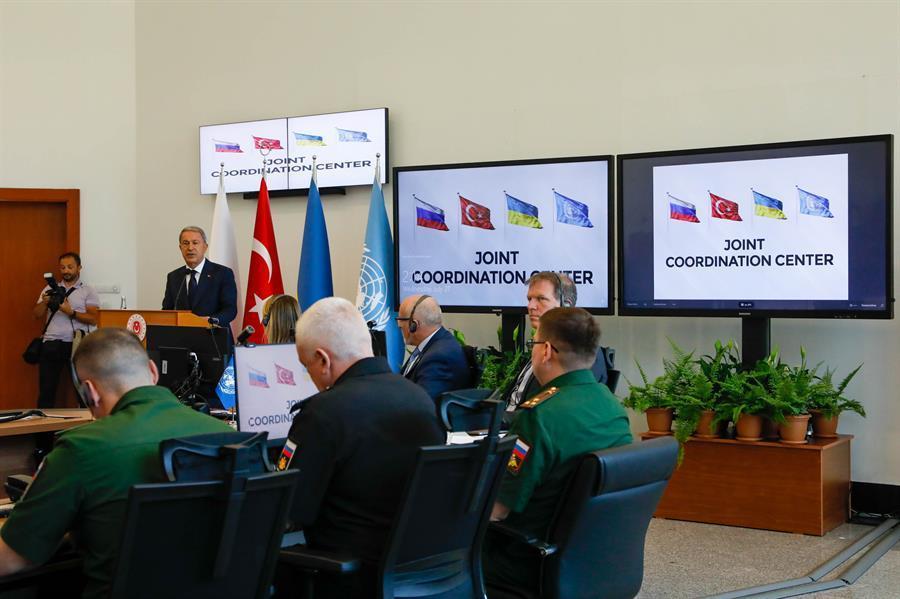
The Joint Coordination Center that will run a complicated operation for the resumption of grain export by Ukraine and Russia despite the ongoing war was launched on July 27 with the expectations that the first ship will sail into the Black Sea in the coming days.
The center was inaugurated through a ceremony hosted by Defense Minister Hulusi Akar and with the participation of Russian, Ukrainian and U.N. officials at the National Defense University in the Maslak district of Istanbul.
The center will operate from the military compound under the command of a senior Turkish admiral who will oversee the monitoring and coordination efforts. Each country and the U.N. will appoint five officials to the center.
“You should all be aware that the eyes of the entire world are on you,” told Akar, addressing the Russian and Ukrainian delegations, stressing that the success of this operation will resolve a major global food crisis. “You have a huge responsibility on your shoulders. It’s a historic, humanitarian and important task.”
The center will operate in a room where Russian and Ukrainian military and civilian authorities will be present together with both Turkish and U.N. officials. By using Türkiye’s national infrastructure, it will follow and record all the commercial maritime activities in the Black Sea and monitor the sail of the cargo vessels leaving Ukrainian ports, Akar stated.
“These vessels will be inspected by a combined inspection team at an appropriate point before they reach the ports in Türkiye,” the defense minister explained. He also stressed some technical support may be given to Ukraine if there is any need for demining its ports, Akar said, but adding there was no need for it currently.
“Our biggest wish from both sides is to comply with the agreement,” the minister said, drawing attention to the significance of the success of this operation to overcome a major food crisis in Africa, the Middle East and elsewhere as these two countries are producing one third of the global need for grain. He said success in the implementation of this plan may set a precedent for resolving the ongoing energy crisis and other problems stemming from the war.
“It is our sincere wish that this plan will constitute a basis for a comprehensive ceasefire agreement to end the war,” he added.
In the meantime, Foreign Minister Mevlüt Çavuşoğlu repeated that Russia’s attack on Odesa port just a day after the deal was signed on July 22 was a matter of concern for everybody. “We express our message that these attacks should not repeat, and the operation continues without problem,” he told in a televised interview on July 27.
On a question, Çavuşoğlu warned that failure in implementing the plan would cause serious troubles for the world as there are many nations that rely mainly on Ukrainian and Russian grain and other food products. “Implementation of this process is to the advantage of both sides as well,” Çavuşoğlu said, reiterating that the success in this operation can increase the chances for a ceasefire in the future. The minister also underlined that some countries did not want this agreement on a food corridor as they want further weakening of Russia. “Is it a realistic approach? No, it is not,” he stated.
“Türkiye will continue to play its constructive and positive role to this end,” he added.